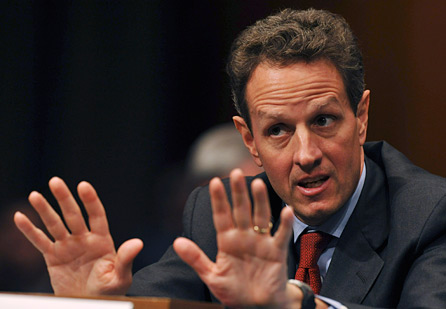
One downside to being rich is that you don’t get to decorate your cubicle in fun and exciting ways that highlight your personality.
Saw this on Yahoo! Finance. It’s a 21-point summary of a book titled How Rich People Think. The consensus seems to be that the book is mediocre, but the summary was solid. Points included stuff like
Average people live beyond their means. Rich people live below theirs.
Average people believe the markets are driven by logic and strategy. Rich people know they’re driven by emotion and greed.
Average people teach their children how to survive. Rich people teach their kids to get rich.
All of which are indubitable, and which inspired us to add to the list.
Rich people quantify, average people aren’t “all about numbers”.
You want to take the one most beneficial step towards improving your financial situation, regardless of how good or bad a place you’re in right now?
Figure out your net worth. Add up everything you own, even including your house if it makes you feel better. Don’t use the sale price, use the current value. Go to Zillow if you don’t know where to start. Don’t forget to subtract your mortgage balance. Oh, that makes it negative? Sorry about that.
Add your 401(k) or IRA balance. It’ll take you 10 minutes to figure this out. You should have an account number and a login somewhere. We’d tell you to subtract your credit card balances, but we’re assuming you’re not so dumb that you’re carrying any.
That’s your net worth. A rich person knows his or hers within a few percentage points, instead of dreading the bills that are going to come in tomorrow’s mail. Here’s one of the stupidest lines we’ve ever featured in our weekly Carnival of Wealth, which itself is often a paean to stupidity. This is verbatim from a submitter, plus the ((sic)):
The Debt
Erika Amex: $285.67
Citi Card: $2,128.41
Student Loan #1: $9,101.51
Student Loan #2: $11,432.70
Student Loan #3: $2,050.00So apparently there is a third student loan (0% interest) that I completely forgot about it (sic) until I was sent a bill in the mail. Great.
Average people get willfully blindsided like this all the time. Rich people don’t “forgot about” $2,050 debts. They know what they owe, and when they’re supposed to pay it by.
Yeah, whatever. Rich people don’t have debts.
Which brings us to another point:
Rich people leverage, average people make do with what they’ve got.
Rich people have plenty of debts. To some extent the richer you are, the more you’ll borrow. If this sounds counterintuitive, you might be average.
Rich people borrow money, at known and stated interest rates, with the intention of earning returns that outpace what they’re borrowing said money at. The prospective dry cleaner who borrows $500,000 at 6% is now on the hook for $30,000 a year. But now he can buy machines and a storefront. He can sell his wares – or in this case, his services. He can take money from customers, who will pay that $30,000-a-year loan for him and do it gladly if he returns their clothes sufficiently gleaming. Maybe he’ll even be able to pay the loan back early, allowing himself to borrow even more, at lower rates, which he can then use to finance bigger operations with.
Or he could get a job working for someone else, and save as much of his pitiful salary as possible.
It’s like people who pride themselves on paying cash for a house, but don’t tell you how long it took them or where they were living in the meantime. If you have to save for 30 years to buy a house, 30 years during which you paid rent to some other homeowner, that’s hardly anything to be proud of.
Most rich people are not born that way. Really, they aren’t, despite what the more reactionary folks on the left side of the political spectrum believe. The Cox family heiresses are outnumbered by the successful entrepreneurs who understood this fundamental principle of leverage. Ultimately, that’s far more important than an inheritance.
Rich people learn from mistakes, average people dwell on them.
Everybody fails. You’re probably somewhat familiar with the following story, but it illustrates the point:
Apple. The largest corporation in the world and one of its most respected. 5 short years after it went public, the board of directors tossed out the company’s primary founder and visionary. The board sided with the CEO whom Steve Jobs had hired, over Jobs.
12 years and 3 CEOs later, Jobs came back, and every home run since has been well-documented. Here’s what a rich person would have learned in that interim:
- I can still create imaginative products, but I need to spend more judiciously.
- Instead of suing my biggest competitor (Microsoft), maybe we can cooperate and both get even richer. Heck, I’d even be willing to sell them a non-voting chunk of the company.
- Our designs are a little different than most. Let’s make them vastly different, and brand ourselves in a way that Dell or Hewlett-Packard can’t imagine.
- We’ve got to stop cannibalizing our own products. In fact, what if we were to make minor changes to them on a regular basis, and sell them to the same people again and again?
- Being a computer manufacturer is swell, if limiting. Why can’t we be a retail outlet? A phone company? A music store?
Here’s what an average person would have learned in the interim, if you’ll suspend disbelief for a second and assume that an average person could have built Apple in the first place:
- This sucks. Ungrateful bastards.
- Who are they to treat me like this?
- Damn, I never should have created the Lisa. Damn. Damn. Damn.
- I wonder if Microsoft would hire me. Maybe I could be a department head there. Gates will rub his hands with glee, but I really need a job.
Ways 25 through 27 on Friday.





